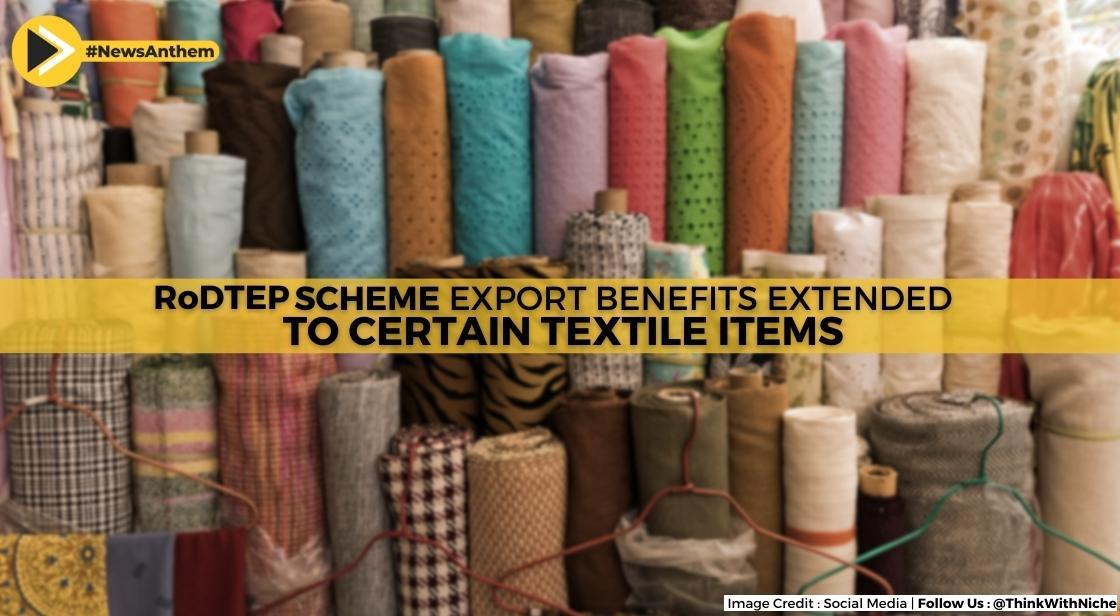Government Extended Export Benefits Under RoDTEP Scheme To Certain Textile Items

News Synopsis
The government has expanded export benefits under the RoDTEP scheme to 18 textile-related items, including saari and lungi, in order to increase exports of these goods. Advantages under the duty refund scheme — Remission of Duties and Taxes on Exported Products (RoDTEP) — will be available starting March 23, according to a notification from the Directorate General of Foreign Trade (DGFT).
Several central and state duties, taxes, and levies levied on input items, among other things, would be repaid to exporters under the RoDTEP. “18 tariff lines…are being added…under RoDTEP for exports made from March 28, 2023,” it stated. Among the textiles are shirting, casement, and cambric.
What is RoDTEP scheme?
RoDTEP (Refund of Duties and Taxes on Exported Products) is the Commerce Ministry of India's main export promotion scheme. The scheme aims to refund exporters for embedded central, state, and local taxes and duties paid on inputs that have not previously been refunded or rebated.
According to a declaration from the Directorate General of Foreign Trade (DGFT)., the government has decided to extend the advantage of the RoDTEP scheme to all goods beginning January 1, 2021.
RoDTEP was introduced in September 2019 with the goal of increasing domestic exports and replacing the Merchandise Exports from India (MEIS) scheme.
This followed a World Trade Organization (WTO) ruling that claimed the MEIS scheme violated WTO terms by providing export subsidies for a wide range of goods.
Primary features of the RoDTEP scheme:
Some taxes, duties, and levies, such as VAT on fuel used in the transportation of export goods, mandi tax, duty on electricity used in manufacturing, and so on, were not returned or reimbursed for exports under the MEIS. The new RoDTEP scheme is intended to ensure the refund of all embedded taxes, central and state taxes on fuel (petrol, diesel, CNG, PNG, and coal cess, etc.) used for transporting export commodities, state government duty on electricity used in the manufacture of export products, toll tax, and stamp duty on import-export documentation, and so on.
You May Like









